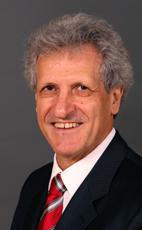Mr. Speaker, I am sorry that you were confused by those of us who were eager to enter into the debate. Just take it as an indication that we wish to represent our constituents with the kind of enthusiasm they have come to expect, at least from those on this side of the House.
If I may, I would like to express the government's position on Motion No. 31. The government cannot support this motion. This requirement would unreasonably restrict the railway's ability to change its activities.
After hearing the witnesses in full deliberations, the standing committee reached a conclusion about amendments to the conveyance provisions of the bill including the time periods that the committee member considered appropriate. This side of the House values the deliberations of the committee and must agree with its decisions. Therefore, we cannot support this motion.
On Motion No. 2, the section sets out a definition that differentiates between main lines and branch lines of the railways. The distinction provides the basis for a different treatment of main line and branch line tracks under other motions. There is no practical reason for treating main lines and branch lines differently. The government does not support this motion because a different treatment will discourage the formation of short line railways. I thank our colleague from Kootenay West-Revelstoke for supporting the government's position on this because it reflects the committee deliberations on the matter.
With Motion No. 28, the proposal is redundant. The opening words of the section already allow for an "interested person" to present applications to the governor in council. Again the government cannot and will not support this motion.
On Motion No. 29, I have already indicated that separate treatment of main line and branch line tracks for the purpose of sale or abandonment is unwarranted. The government again supports the standing committee's reflections and amended versions of the conveyance provisions and therefore will not support the motion.
On Motion No. 30, this would potentially require railways to have a plan available for inspection in every office since every line will be included in the plan, even those the railway intends to keep operating. In our view that would be excessive and an unwarranted burden on the railway. Again, I make reference to the standing committee's amended version of the conveyance provisions. Since the government supports the standing committee's deliberations, it will not support this motion.
I now turn to Motion No. 32. The hon. member for Kootenay West-Revelstoke made reference to the government's or Parliament's concern for the Atlantic provinces in terms of linking them with the rest of Canada. That has been a tradition of policy development with this government and this party ever since Confederation. We keep those considerations very much in the forefront whenever we make pronouncements on legislation like this. I would not want the member to think or to attempt to convey the impression that members of the Liberal Party have forgotten their roots. The reason we are still very much acceptable in Atlantic Canada is precisely because we consider its needs and its interests first and always.
After hearing witnesses on Motion No. 32 and after full deliberations, the standing committee reached a conclusion about the amendments on the conveyance provisions of the bill which I mentioned earlier. It did not support renewed regulation by the agency. Therefore, in support of the standing committee's amended version, the government will not support this motion.
The government does not support Motion No. 36 because property negotiations generally occur on a case by case basis in the commercial world and are not placed in any uniform, regulatory scheme that the utilities propose to apply to the railways. Utilities face the same problems in their dealings with municipalities and other property owners. The utilities as property owners are under no similar obligations as to the timeliness or quality of easements that they must provide to other parties.
If there are problems with the genuine transportation dimension to be addressed, the agency should assess them as a matter of course in its annual review and with any amendments carried out at the time Bill C-14 goes through its final review.
On Motion No. 37, I can offer the same kind of rationale. Therefore I can advise the House that the government will not support this motion.
On Motion No. 38, the government cannot and does not support this amendment because it runs contrary to one of the main thrusts of the bill, which is to allow railways to rationalize their network as commercial transactions. The best way to assure the continued
operation of the CN Halifax to Montreal line is to allow an unfettered rationalization of underutilized track.
I consider Motions Nos. 39 through 55 as one in the interests of time and offer the comment that would apply to all of them. I hope that members of the House will accept that the government does not support any of Motions Nos. 39 through 55 because Bill C-14 recognizes, as I said earlier, that railways are commercial enterprises and must have the freedom to adjust their networks under change of conditions. I can further add that these motions would require the railway whose lines are uneconomical to operate them without being compensated for losses. This would be in direct conflict with the existing national transportation policy. I repeat that the government will not support Motions Nos. 39 through 55.

